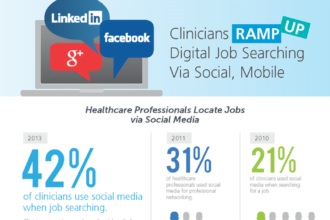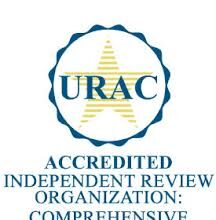A new report in the Annals of Internal Medicine, “Online Professionalism Investigations by State Medical Boards: First, Do No Harm,” by S. Ryan Greysen, MD, MHS, MA; David Johnson, MA; Terry Kind, MD, MPH; Katherine C. Chretien, MD; Cary P. Gross, MD, MPH; Aaron Young, PhD; and Humayun J. Chaudhry, DO, MS, addresses which inappropriate online behaviors would prompt investigation by state medical boards.
A new report in the Annals of Internal Medicine, “Online Professionalism Investigations by State Medical Boards: First, Do No Harm,” by S. Ryan Greysen, MD, MHS, MA; David Johnson, MA; Terry Kind, MD, MPH; Katherine C. Chretien, MD; Cary P. Gross, MD, MPH; Aaron Young, PhD; and Humayun J. Chaudhry, DO, MS, addresses which inappropriate online behaviors would prompt investigation by state medical boards.
The authors partnered with the Federation of State Medical Boards and in a national survey presented a series of ten hypothetical vignettes for inappropriate online physician behavior to the Federation of State Medical Boards and 70 state medical and osteopathic boards.
Surveys were sent to the executive director of each board. Respondents were asked to assess the likelihood of further investigation into a behavior using a four-point scale from “very unlikely” to “very likely.”The Federation of State Medical Boards deems it necessary for physicians to be aware of potential consequences for their online actions.
“Physicians should be aware of the potential consequences for online behaviors as depicted in these vignettes and apply the same high ethical and professional standards in their online actions as they would in their actions offline.”
It’s clear from the report that the state boards feel that physicians should “never” breach professionalism standards of behaviors by violating patient confidentiality, alcohol abuse or engage in inappropriate relationships with patients.
While the vignettes identified in this article are hypothetical, “the vignettes and images were created to look exactly what we found online,” said Dr. Ryan Greysen, today in a telephone interview.
While the Federation of State Medical Boards will not be the entity to implement specific guidelines for consequences for physicians, it will be up each state board to address the issues, said Greysen. However, if they encounter behavior from physicians which is inappropriate online or offline, they are within “jurisdiction to act on it.” “They don’t feel restrained from taking action for what happens online if it’s inappropriate,” he added.
According to the survey, what type of inappropriate online behavior by physicians would lead to an investigation?
There was a high consensus among respondents that physicians should never post:
- Misinformation on physician practice website
- Misleading information about clinical outcomes
- Use patient images without consent
- Misrepresent credentials
- Inappropriately contact with patients such as using dating sites to “chat” with patients
There was a moderate consensus for investigation, or those that were considered a “gray area,” included:
- Depicting alcohol intoxication
- Violating patient confidentiality
- Using discriminatory speech
Online behaviors that were not likely to result in investigation included:
- Derogatory speech toward patients
- Showing alcohol use without intoxication
- Patient confidentiality|Narrative blog of patient encounter with no identifiers
The authors note that many of the online violations would be considered violations offline, too, according to established professional codes. The researchers suggest that standards for online behavior may need to be established as they have been for offline behavior.
The vignettes used in the article are to increase awareness of specific online behaviors that physicians should never engage in. Despite guidelines from various organizations such as AMA, Federation of State Medical Boards (FSMB) it will be up to the medical boards from each state to identify consequences for inappropriate behaviors.
The goal is to increase awareness of appropriate online behaviors which “may reduce investigations and improve online professionalism for physicians.”
“Online activity goes back to the basic principles of professionalism,” said Greysen. He stated the authors’ did discuss whether online activity is a First Amendment Issue and “in the case of licensed professionals, if they violate the code of ethics, the state medical boards have the authority to bring sanctions against them.”
Authors’ note:
“Beyond the potential for board investigation, there may be other legal consequences for violations of online professionalism as depicted in our vignettes, especially if these trends continue. Hospitals may suspend or terminate privileges; employers may terminate employment and could even bring suit against physicians for negative publicity as a consequence of unprofessional content posted by physicians. Likewise, patients could bring suit for violations of privacy under the Health Insurance Portability and Accountability Act that could also be prosecuted by the Department of Health and Human Services.”
Additional information about the survey:
“For each vignette, respondents were asked to assume that the online content was openly accessible to the public and resulted in a complaint to their medical board. They were then asked to rate the likelihood of further investigation at their board in response to the content presented. Response choices used a 4-point incremental scale from “very unlikely” to “very likely,” with an additional option for “don’t know.” Respondents also could provide free text comments on each vignette after choosing from these responses.
The authors’ findings “underscore the need for more continuing education of physicians in practice about potential interpretations and consequences of online actions so that their social media presence can be a professional benefit instead of a liability.”
Bottom line
Investigations into online inappropriate physician conduct will be up to the state boards, and as the authors find, continuing education in social media use by physicians is needed. Online behavior from physicians and any other licensed health care professional should mimic their professional life offline. It’s imperative that professional ethics is maintained online and offline.
Finally, this fascinating study found that online behaviors such as derogatory speech toward patients or showing alcohol use without intoxication were not likely to result in investigation; however, these types of behavior aren’t professional and could damage the reputation and image of the individual and the profession.
Your turn
What are your thoughts on physicians online use in social networking sites? Are you a physician or another licensed health care professional? How do you use social media? What rules guide you?
As always, thank you for your valuable time and insights.
Source:
“Online Professionalism Investigations by State Medical Boards: First, Do No Harm” by S. Ryan Greysen, MD, MHS, MA; David Johnson, MA; Terry Kind, MD, MPH; Katherine C. Chretien, MD; Cary P. Gross, MD, MPH; Aaron Young, PhD; and Humayun J. Chaudhry, DO, MS – January 15, 2013 Annals of Internal Medicine Volume 158 • Number 2- Ann Intern Med. 2013;158
—
—








